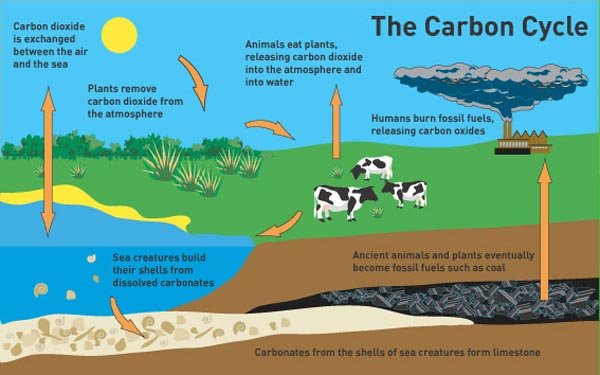How does cellular respiration affect the carbon cycle?
1 Answer
Increase of cellular respiration has a minor effect on the amount of carbon in the air.
Explanation:
Cellular respiration does not affect the carbon cycle but is part of the carbon cycle.
It is important to keep in mind that there are 2 carbon cycles: the short carbon cycle and the long one. On the image below are the two cycle showed: 
The short carbon cycle
carbon (
Then some animals will eat the plants causing these organic compounds to be passed to the next organism. We humans also take up this glucose in many different forms of food. In cells of these animals, the organic compound is used to create an energy source (mostly ATP)so we can move and breath. This process of creating an energy carrier such as ATP from an organic molecule is called cellular respiration.
When we make that energy carrier, again
The short cycle also contains the dying of 100-year-old trees which is still short compared to the long cycle.
The long carbon cycle
The long cycle takes place in thousands of years!
When organisms die in the see, the organic compounds are influenced by the enormous pressure of the see or huge chunks of land. When a bunch of these compounds are compressed for a long time, oil or coal is naturally produced.
When we burn the coal to keep our house warm, the carbon our of these compounds are released into the air and can take place in the short carbon cycle! Because the oil is not produced naturally as fast as we consume it, the carbon amount in the air will increase!
So with this information, we can conclude that cellular respiration does not dramatically affect the amount of carbon in the air because it originally came from there (from the short cycle). It is a minor effect compared to the burning of oil (which takes thousands of years to form again).
